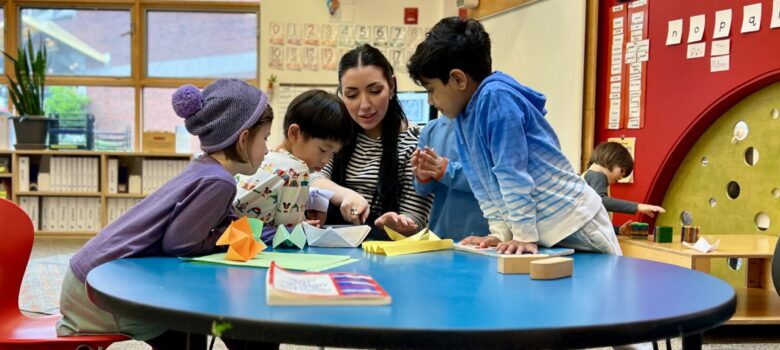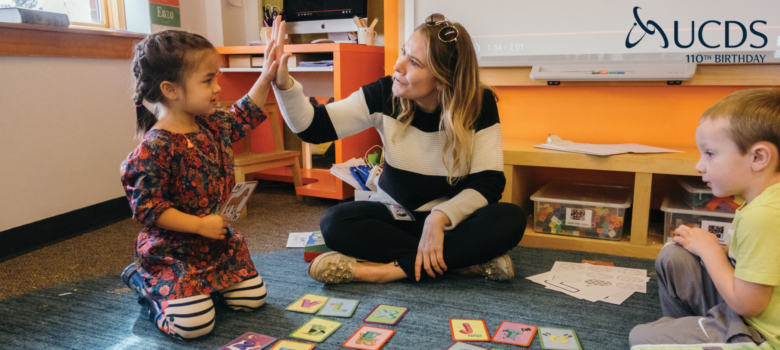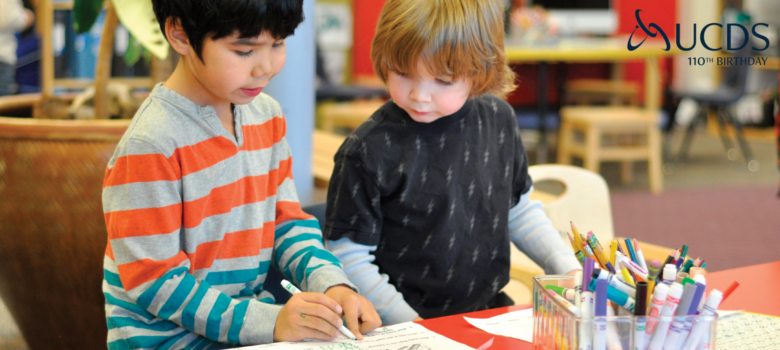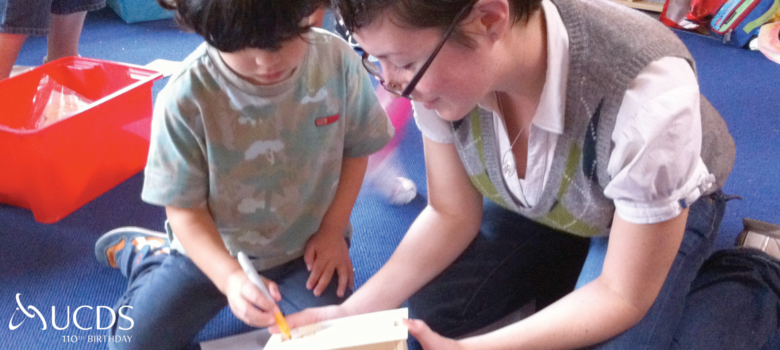Some words of wisdom along with insightful classroom ideas are shared by veteran teacher Melinda Deal in her final post this season. -Ed.
_________
My daughter’s boyfriend posted recently that he watched someone give a Nazi salute from a car window as they drove by a Jewish retirement home in his neighborhood. The spectrum of possible responses, from chasing them down (battery has serious consequences) to fuming inside (which is what he did) left him stymied. Instead he shared his outrage on social media, posing the question for all of us, “What should I have done?”
I responded with the answer that came to my mind first. “Become a history teacher.” The more I thought about it, I would add … or a kindergarten teacher. Any kind of teacher, because there you have a chance of encountering youth who are damaged enough to act out with hate, bigotry, or intolerance. And there you have an opportunity to nurture hearts and minds, teach compassion, and help kids practice skills of activism and leadership. There you will find hope.
We are all impacted by the historical and political period we are living through. The expressions of intolerance, injustice, and authoritarian zeal that have been on display in recent news cycles and perhaps in our own neighborhoods and cities, can be upsetting to the point of leaving us feeling helpless. I’ve been thinking a lot lately about what I do, as a teacher, and what we do, as a school, to create a more just world, and to develop our young students into the activists and organizers that our world will need even more in the future.
As we continue to grapple with our own levels of cultural competency and better educate ourselves about equity and inclusivity, I like to reflect on the ways in which our school climate is dedicated to helping all students become socially aware and active participants in an ethnically and culturally rich, diverse community.
Here is my current thoughts about what we, as teachers, are already doing:
Teaching kids to listen and talk respectfully to all. At our school, all kids and teachers sign the UCDS Constitution yearly. We agree to “respect ourselves, others, and the environment.” Chances are your school has some similar intrinsic or extrinsic cultural expectations for behavior. This agreement becomes a constant way to frame the problems that emerge between students and the way we help kids navigate their conversations in the classroom, playground, and throughout the school. Teachers model collaboration, including asking for more information to understand someone’s perspective, and disagreeing respectfully. Rather than adapting a single “social skills” curriculum, teachers coach kids through real-life problems, from playground scuffles to feelings of exclusion. I am confident that being present, taking time out to facilitate in-the-moment problem solving, and explicitly teaching mediation skills helps create kids who value individual differences and can walk in another’s shoes.
Introducing literature that represents a variety of perspectives and engaging in courageous conversations about inclusivity and social justice. Being mindful about what we read to and with children, we continue to try to build more cultural awareness and globalism with our literature selections. We teach children to read critically, contrast fiction with nonfiction, discern the reliability of websites, and appreciate the historical relevance of different sources. There are currently numerous helpful lists of the type of literature that can teach about social struggle, bring about conversations concerning equity and justice, and inspire kids to activism for their own causes. Here are just two examples:
20 Books to Inspire Social Change
http://www.yalsa.ala.org/thehub/2016/11/10/20-books-inspire-social-change
40+ Children’s Books about Human Rights and Social Justice
http://www.niahouse.org/blog-fulton/2016/11/3/40-childrens-books-about-human-rights-social-justice
Creating a school culture in which students have a voice, and a reason to participate. Starting in preschool, students learn that a classroom can be a place to solve problems, and democracy can work. When students or teachers have concerns, or ideas for improving the community, at UCDS they bring them to the Class Meeting agenda. Student voices are heard: concepts such as “fair, equal, respectfulness, kindness, and community” are discussed relative to the issue. All ideas are considered, all viewpoints are valid, decisions are made by consensus or voting, with the understanding that adults may need to set parameters based on safety, legality, or finances. Topics that affect the broader community go to All School Meetings. Students practice standing up for what they believe is right, and standing up for others when they are wronged. I recently overheard a third-grader explain, “If you hear someone being teased on the playground, you have a responsibility to act. There are no innocent bystanders.” I contend that if this is the community culture that children adopt at a young age, they will continue to demand equity and involvement in their adult communities.
Teaching kids the communication and organizational skills to build coalitions and effect change. When we design curriculum around project-based collaborative work, we are teaching students the skills they need to succeed in a pluralistic society and to become agents of social change. For example, first and second graders who learned about the impact of decreasing numbers of honey bees held a symposium and took their information to canvas at a local university. Second and third graders who had researched endangered species sold candy bars to raise awareness and fund species rescue projects. Fourth and fifth graders worked in teams to develop their own mock non-profit agencies, modeled after those they had researched, publishing magazines advocating for their cause. Each of our fifth graders serve on a committee, alongside faculty, to help organize and implement a facet of the schools’ program (e.g., Admissions, Community Development, Special Events). Attending meetings, being a spokesperson for the group, pitching your ideas and pitching in on the labor, staying organized and committed, and building passion in others — these are the experiences that they will build on through their teen years and eventually bring to our future citizenry.
No matter your school scenario, or how many students you are in a position to impact, believe that you make a difference each day that you interact with kids. May many more of our young adults who wonder “What should I do?” decide to go work in schools. There you will find hope.




